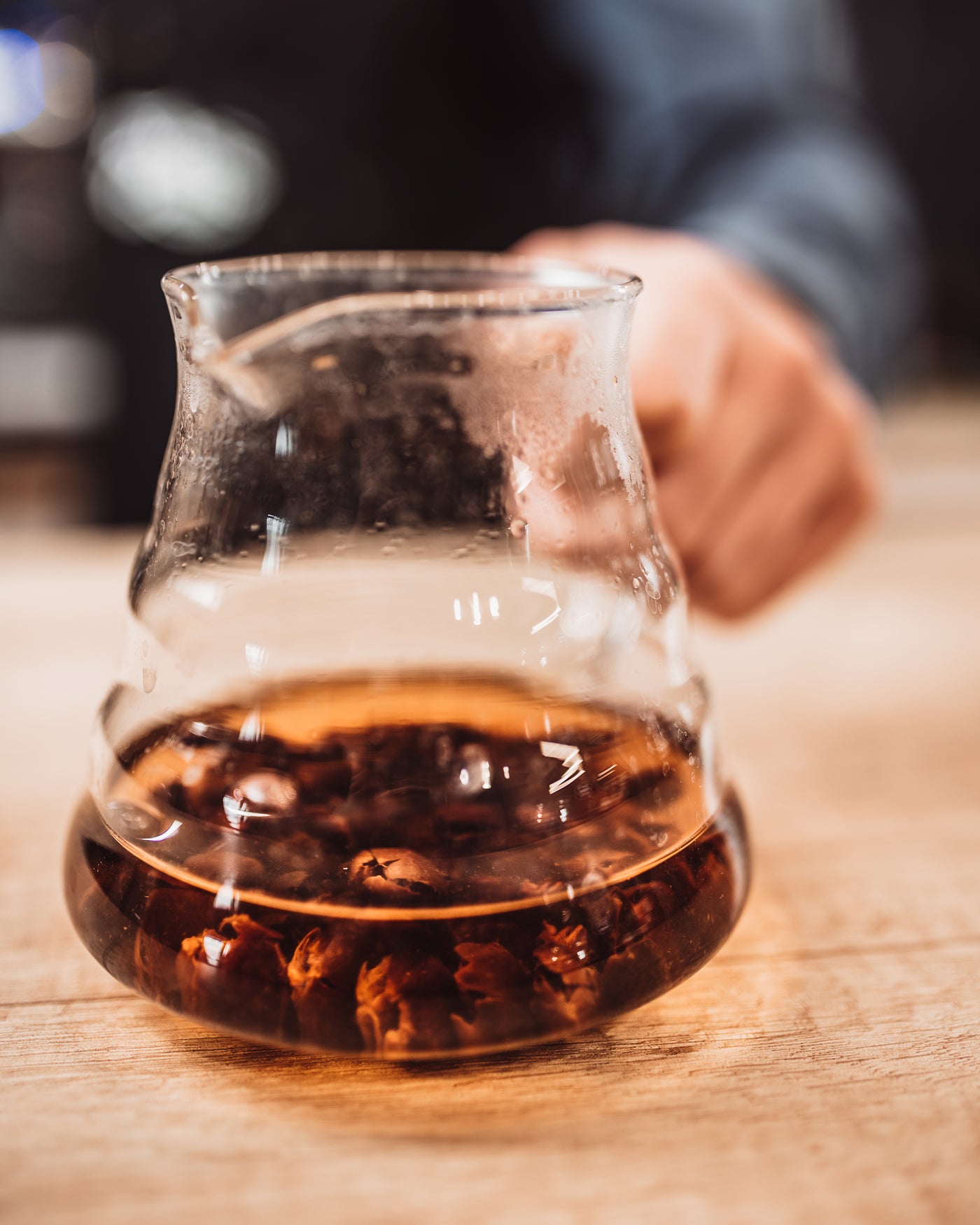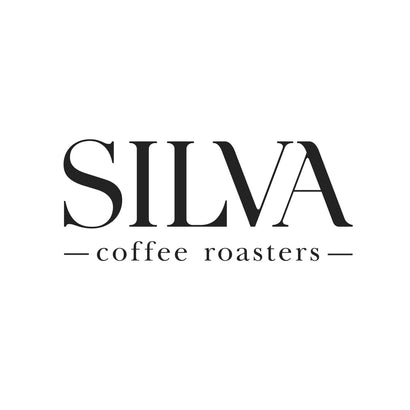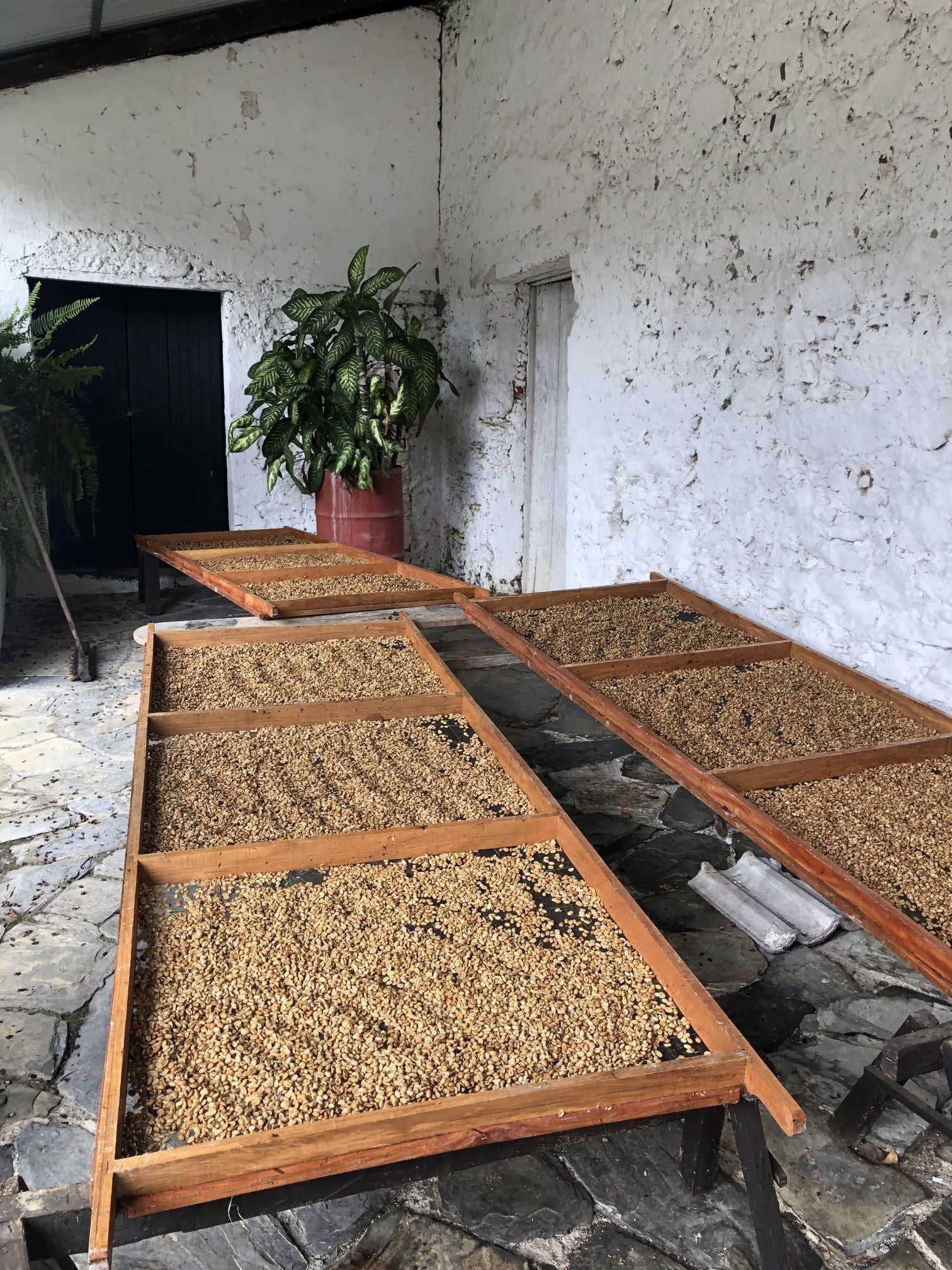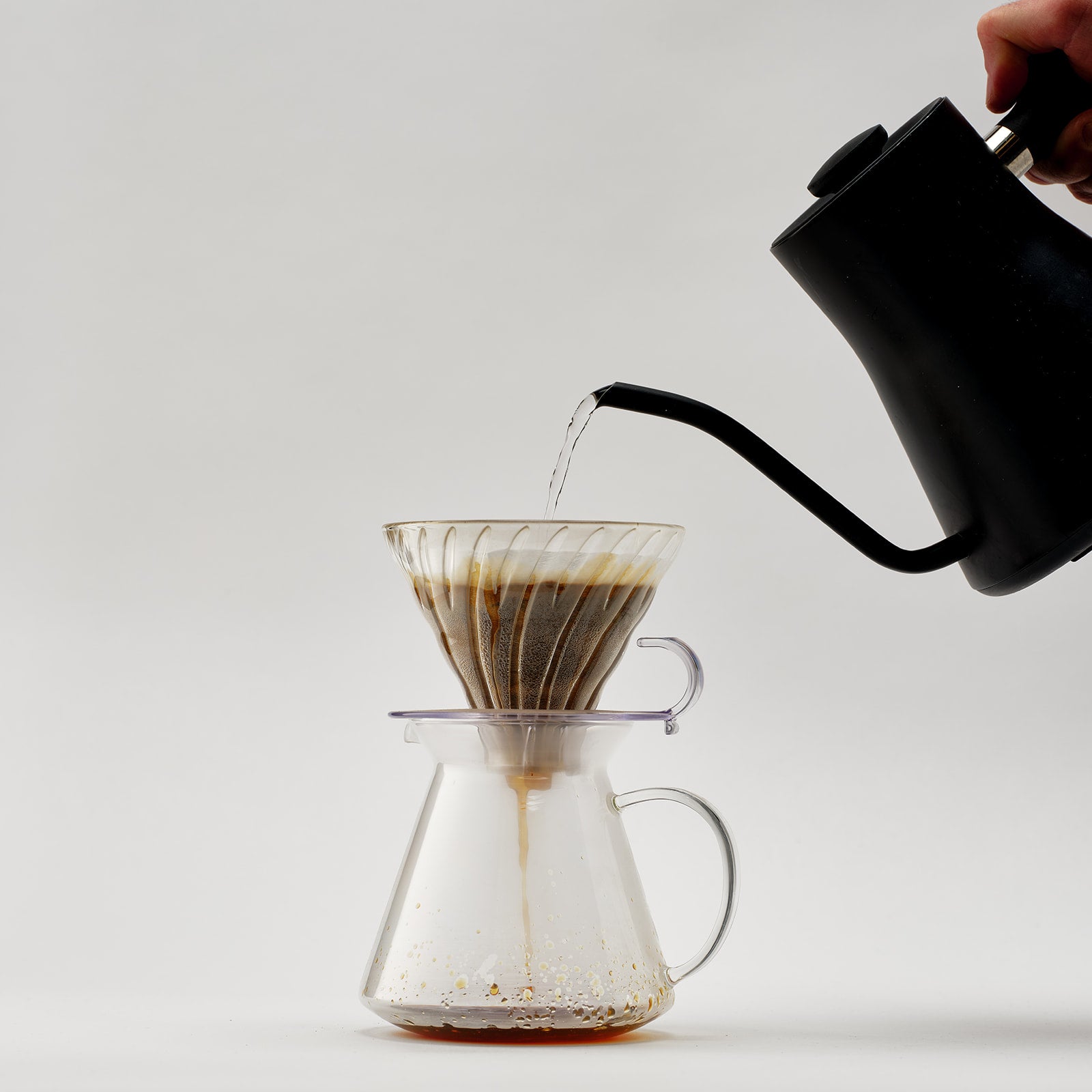

Cascara is brewed in hot water as a tea-like infusion, the flavor of this cascara drink is rather unique: apple, hibiscus, delicate florals, vanilla, and redcurrant.

Cascara can be brewed to enjoy as a delicious hot tea or, cold brewed served chilled over ice for a refreshing iced (coffee) tea in Summer.
CASCARA HOT BREW RECIPE
Brewing vessel: plunger (French press) or teapot
CASCARA COLD BREW RECIPE
Pour in 1000ml of cold filtered water and stir
Seal lid and place in fridge for 10 hours

THE STORY
'Cascara' has long been treated as a waste product for many coffee farmers, often used to compost the coffee plants. We've also been told by some Brazilians that they drank it as a cold remedy with honey and ginger as children, administered by Grandma (Avo)!
Over the past 5 years coffee roasters have been encouraging coffee producers to supply it as a unique and delightful alternative coffee beverage.
This unique Cascara is produced at Helsar de Zarcero Micromill in Costa Rica, owned by Ricardo Pérez and brothers Felipe and Marvin Rodriguez. It is the first Cascara ever to be picked specifically to produce Cascara and dehydrated (usually it is sun-dried or roasted) to produced a clean and exceptionally nuanced flavour profile.
The Helsar de Zarcero Micromill was built in the early 2000s in order to control the processing (and therefore the quality) of their farms. Since 2012, the University of Costa Rica and Helsar Micromill have been researching the possibility of creating food-grade cascara using modern technology, pasteurization, and specialization. In an interesting role reversal, the coffees used here were picked specifically to produce cascara—the coffee seeds are the "by-product" in this unique case!





